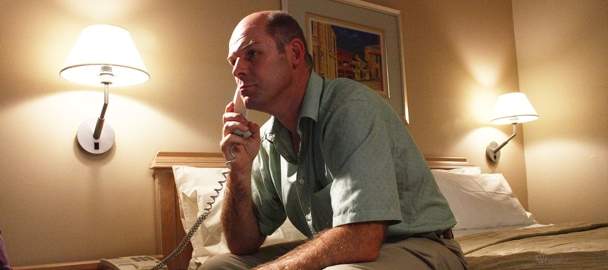Beauty
The Cannes' Queer Palm winner is a disturbing study of a man dealing with his closet racism and homosexuality.
Overview
In Beauty, Francois is self-contained, unhappily married, white, middle-aged. He's from another world — that of Apartheid South Africa — and has utterly failed to adjust to the post-Apartheid landscape where the privileges he was born with mean less. He quietly and unapologetically throws around racist and homophobic slander across the dinner table. But as the reality of Francois' identity is slowly revealed, we come to understand that he is the object of his own loathing: he's not just a closet racist, but a closet gay man.
His unravelling begins when he meets Christian (Charlie Keegan), who is distinctly new-world South African: young, handsome, successful, loved, and genuinely charismatic. He is the symbol of everything that is unavailable to Francois (played subtly and menacingly by Deon Lotz).
Beauty is not about politics per se, but it is deeply political: it delves into how matters of sexuality and race manifest in individuals. The last film that did this successfully was the Iranian A Separation, and so director Oliver Hermanus has a tough job cut out for him. As a drama, Beauty never achieves the devastating tension of A Separation, but as a character study of someone who is both shaped and impounded by his culture, it is quite effective. The film is not just about the tragic figure of Francois but about all people who fear the world as it turns and changes around them.
Likewise, Beauty is not so much about desire and obsession, as some have reported, but repression and unrealised longing. The point is not semantic when discussing the complexities of internalised homophobia. Clearly the film is ambitious in scope, but it refuses to answer the many questions it throws at the audience so violently and distressingly about the nature of fear, sexuality, race, and social change. It is one thing to examine the plight of a self-hating gay man, but Hermanus risks overly humanising Francois' descent into inexcusable brutality.
The director was a press photographer in his former life, and his fondness for very still, slowly edited shots often brings the pace of the film to a standstill, undermining his ability to gradually build suspense. Despite its shortcomings, its braveness was rewarded with the Queer Palm at Cannes Film Festival. Beauty frustrates and disturbs in equal measures.





